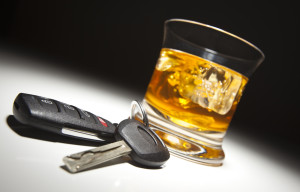
DWI penalties in New Jersey are severe. There are many life-altering consequences that can result from drinking and driving. One of the most common is the order to install an ignition interlock device in your vehicle. If you have been charged with a DWI, it is in your best interest to reach out to an experienced New Jersey criminal defense attorney as soon as possible. Keep reading to learn about these devices and how they work.
How does an ignition interlock device work in New Jersey?
If you were charged with a DWI, you will likely be required to install an ignition interlock device. An ignition interlock device is a device that installs directly into your car and requires that you provide a breath sample before you start your vehicle. If you blow into the device and it reads a blood alcohol concentration above .05%, the car will not start. Additionally, while you are driving, it is likely that you will have to provide more breaths to show your sobriety level. If do not provide a breath sample when asked to, the device will release an alarm, making you pull over.
It is also important to note that these devices are taken very seriously in New Jersey and prohibit other people from using them on behalf of the driver. Attempting to use another person’s breath to turn on your car is a severe violation for both parties involved and penalties are very likely.
Do I have to install an ignition interlock device?
In New Jersey, a first offense DWI with a blood alcohol concentration over .15% may require the installation of an ignition interlock device in your car.
The installation of this device may also be required if you refuse to take a breathalyzer test. Additionally, the device must be installed after the driver’s license is returned for a minimum of six months and a maximum of one year.
The court will usually decide if the ignition interlock device is necessary if the driver’s blood alcohol concentration is lower than .15%.
People facing a second DWI charge may have to install the device for one to three years after their license is reinstated. This provision also applies to drivers with third convictions or the refusal of a breathalyzer test.
If you have not installed a device when the court has ordered you to, the court can require another year of license suspension. If you are facing penalties because of a DWI, contact our firm today to discuss your options.
Contact our Firm
The dedicated and compassionate attorneys at Vigilante Law Firm, P.C. would be happy to provide you with assistance in your case and help you protect your future when so much is on the line. Contact us today to schedule a consultation so we can assess the specific circumstances surrounding your lawsuit.


